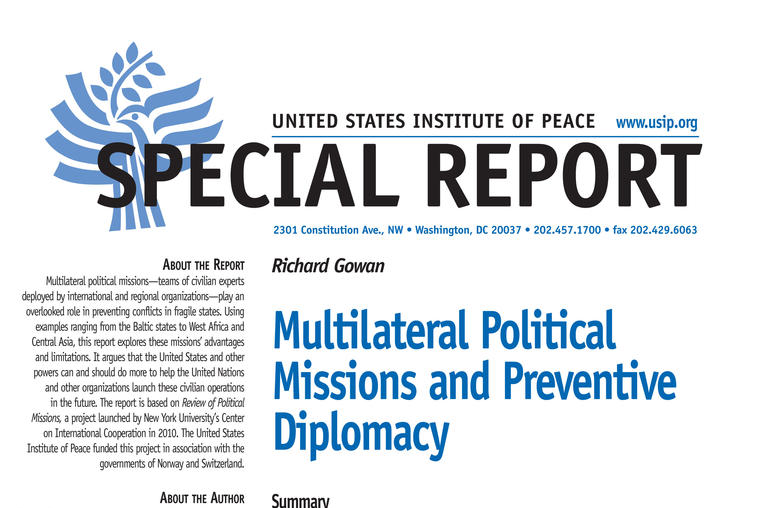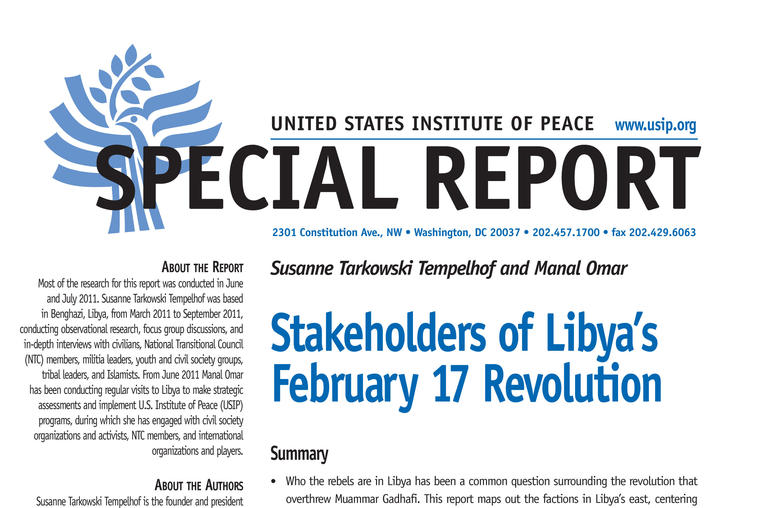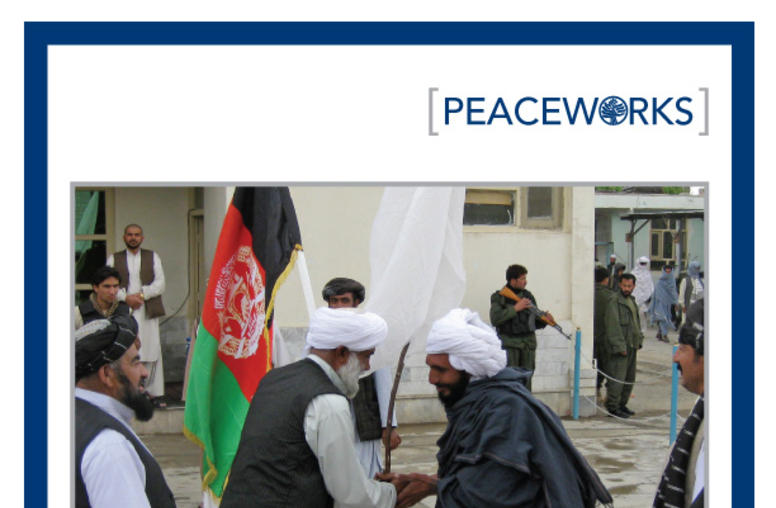Publications
Articles, publications, books, tools and multimedia features from the U.S. Institute of Peace provide the latest news, analysis, research findings, practitioner guides and reports, all related to the conflict zones and issues that are at the center of the Institute’s work to prevent and reduce violent conflict.
Analysts Laud U.S. Commitment to Asia
The Obama administration’s reaffirmation of American engagement in the Asia-Pacific region for strategic and economic reasons is welcome, but describing it as a “pivot” toward the region in the wake of U.S.-led wars in Iraq and Afghanistan neglects the continuity through decades of U.S. involvement in the region, three senior foreign policy figures from the United States, Japan and South Korea said at a forum sponsored by the United States Institute of Peace (USIP) on December 15.
U.S. National Action Plan (NAP) on Women, Peace and Security
“Women should have access to the same opportunities and be able to make the same choices as men. Experience shows that countries are more peaceful and prosperous when women are accorded full and equal rights and opportunity. When those rights and opportunities are denied, countries often lag behind.” U.S. National Security Strategy, 2010, p. 38 September, 2012 | News U.S. Agencies Move to Implement National Action Plan on Women, Peace, and Security Two U.S. government agencies, the U.S. De...
On the Issues: The Fog of the Post-Kim Jong-il Period
John Park, a senior program officer who directs USIP’s Korea Working Group, analyzes the key policy issues arising from the sudden death of North Korean leader Kim Jong-il on December 17.
Justice and Security Dialogue
Justice and Security Dialogue brings together stakeholders at the local community level to strengthen rule of law and security by building lines of communication, increasing trust, sharing information, promoting accountability, and providing input on justice and security reform needs and options.
After 2014: Managing the Transition in Afghanistan
USIP hosted an event in which experts look at building the Afghan economy in anticipation of the big transition in 2014, when American and NATO forces will finish turning responsibility for the country's security to the Afghan government. It's also when, a new World Bank report suggests, the bulk of foreign assistance, now keeping the Afghan economy alive, will begin to dry up.
USIP Aids Libyan Post-Qaddafi Transition
During a regional visit to the Middle East, USIP’s Manal Omar visited Libya several times as part of the Institute’s engagement in support of the ongoing transition there. Omar is director of USIP’s Iraq, Iran, and North Africa Program.

Multilateral Political Missions and Preventive Diplomacy
Multilateral teams can often bring a level of expertise and impartiality to preventing conflicts that other missions cannot. With a little more support, they can be an even better tool for conflict prevention. The report is based on Review of Political Missions, a project launched by New York University ’s Center on International Cooperation in 2010. The United States Institute of Peace funded this project in association with the governments of Norway and Switzerland.

Stakeholders of Libya’s February 17 Revolution
United in revolution, Libya’s various rebel groups have high expectations of a new government but are divided on many fronts. Understanding who these factions are and the tensions among them is key to finding common ground on how to rebuild Libya’s political process.
Assistant Secretary of State Johnnie Carson Explains the U.S. Military Mission in Uganda
Assistant Secretary of State Johnnie Carson tells a USIP audience at an event in December about the deployment of American military forces to Uganda to pursue the Josephy Kony and the Lord's Resistance Army.

Beyond Power-sharing: Institutional Options for an Afghan Peace Process
Much of the debate about a peace settlement with insurgents in Afghanistan focuses only on political or territorial power sharing. But a successful peace process will require a broader array of measures that allow conflicting parties to share influence and balance that influence with more roles for noncombatants, civilian political actors, and vulnerable groups.